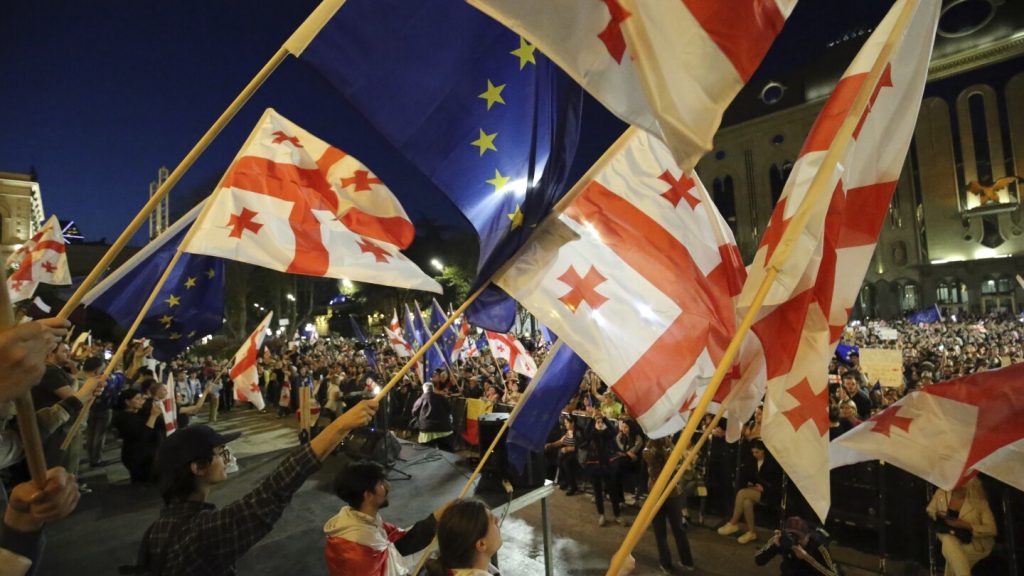Georgia’s parliament has approved a law in the first reading that would require media and non-commercial organizations to register as being under foreign influence if they receive more than 20% of their funding from abroad. This proposal has sparked protests, with thousands gathering outside parliament to denounce the law. Critics argue that it could hinder Georgia’s efforts to join the European Union and draw parallels to similar legislation in Russia that targets independent media and organizations. EU foreign policy chief Josep Borrell has expressed concern over the development, stating that the law is not in line with EU core norms and values.
President Salome Zourabichvili has indicated that she would veto the law if it is passed by parliament in the third reading. However, the ruling party has the power to override the veto by collecting 76 votes, paving the way for the legislation to be signed into law by the parliament speaker. The bill bears similarities to a previous proposal that was withdrawn last year following widespread street protests. Large demonstrations in Tbilisi have been met with tear gas by police, indicating the deep divisions over the proposed law.
Opposition parliament member Aleksandre Ellisashvili has branded lawmakers who supported the bill as “traitors” during a recent rally, emphasizing the power of the people over the government. The revised wording of the law now requires organizations that receive significant foreign funding to register as “pursuing the interests of a foreign power,” a change from the previous language that labeled them as “agents of foreign influence.” Critics argue that this law represents an existential choice for Georgia, potentially isolating the country from the EU and aligning it with Russian influence. Civil society groups have warned that it could impede freedom of expression and unfairly stigmatize organizations working for the benefit of Georgian citizens.
The EU has reiterated its support for Georgia’s vibrant civil society and warned that the proposed legislation could restrict the capacity of civil society and media organizations to operate freely. Borrell emphasized that the law would negatively impact Georgia’s progress on its EU path and urged lawmakers to reconsider their support for the bill. The growing opposition to the law has culminated in large demonstrations outside parliament, with protesters demanding that Georgia remain on its European path and not succumb to restrictive laws reminiscent of those in Russia, Kazakhstan, and Belarus.
The debate over the proposed law is intensifying as Georgia grapples with balancing its desire to align with European values and institutions while facing pressures from neighboring countries with different political systems. The outcome of this legislation will have significant implications for Georgia’s democratic development and its relationship with the EU. As the country navigates these internal challenges, the voice of civil society and the will of the people remain crucial in determining the direction of Georgia’s future. Despite the ongoing protests and opposition to the law, the ruling party appears determined to push it through, setting the stage for further tensions and divisions within Georgian society.


